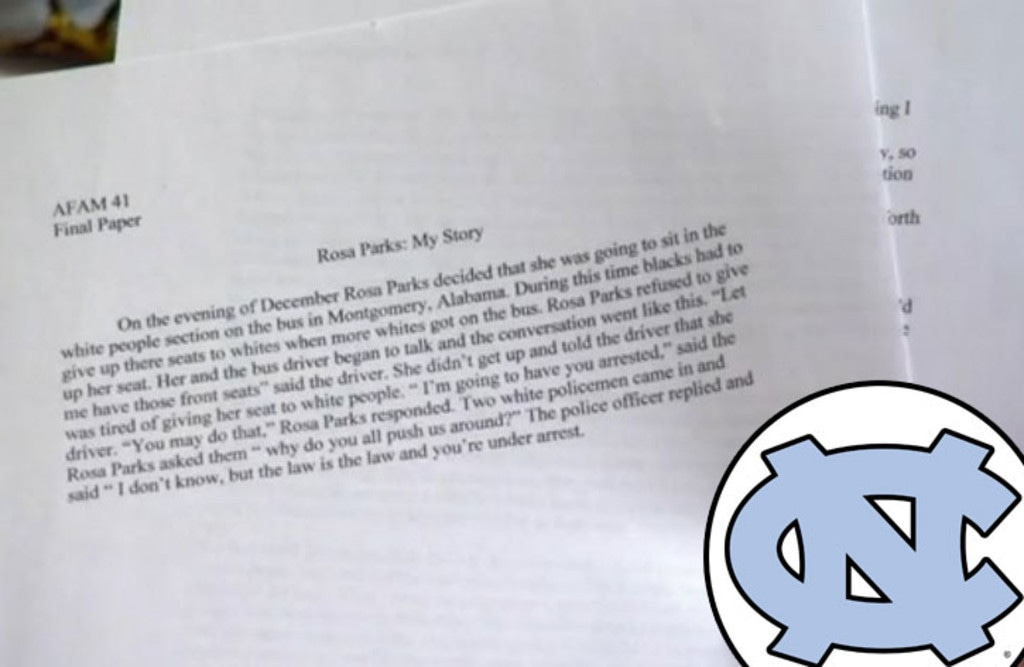 ESPN
ESPNStudent athletes often seem to get an unfair advantage. No shocker there—if you went to a big sports college you might have taken classes with athletes who got "special tutoring" or "practice exams"—but this is allegedly a real paper written by a football player at the University of North Carolina at Chapel Hill.
And it apparently got an A-. WHAT?!
Mary Willingham, an advisor turned badass whistleblower, exposed what she claimed is a "system of corruption" at UNC that allowed athletes who were basically illiterate to get passing grades. "Athletes couldn't write a paper," she told ESPN. "They couldn't write a paragraph. They couldn't write a sentence."
She claims students would take "paper classes," which she said required no attendance and only one paper was graded per semester. (An athlete alumni quoted in the story called the classes "chill" and a way to "get an easy B.")
But she claims this paper got an A-. And it was a final paper. This is the accumulation of a semester's work and it's only 146 words long. The essay has been transcribed on many sites as such:
On the evening of December Rosa Parks decided that she was going to sit in the white people section on the bus in Montgomery, Alabama. During this time blacks had to give up there seats to whites when more whites got on the bus. Rosa Parks refused to give up her seat. Her and the bus driver began to talk and the conversation went like this. "Let me have those front seats" said the driver. She didn't get up and told the driver that she was tired of giving her seat to white people. "I'm going to have you arrested," said the driver. "You may do that," Rosa Parks responded. Two white policemen came in and Rosa Parks asked them "why do you all push us around?" The police officer replied and said "I don't know, but the law is the law and you're under arrest."
The author didn't even close the quotation marks on that last sentence.
"This is not even close to college work yet this athlete was awarded an A-minus," Willingham said in the interview.
And to think, if he had only known the difference between "there" and "their," he might have got an A.